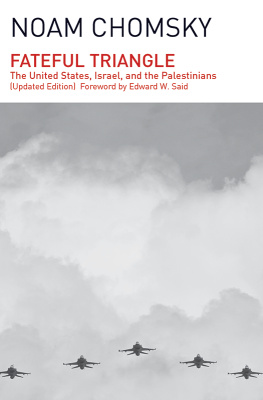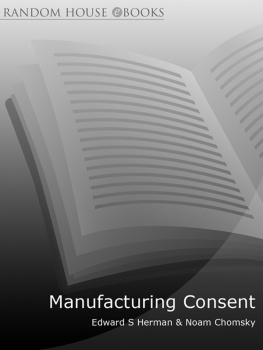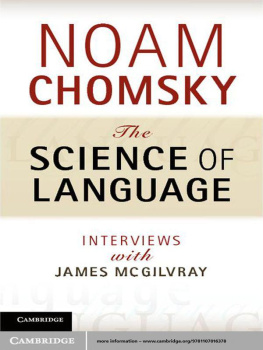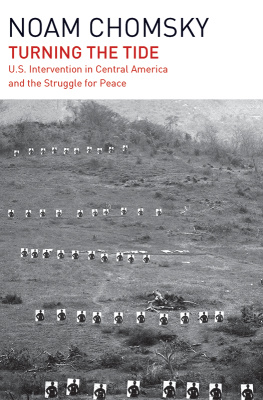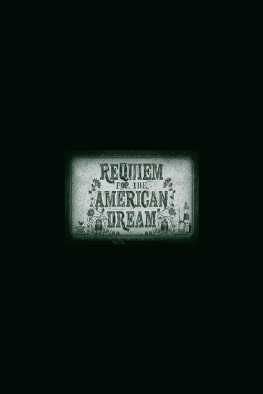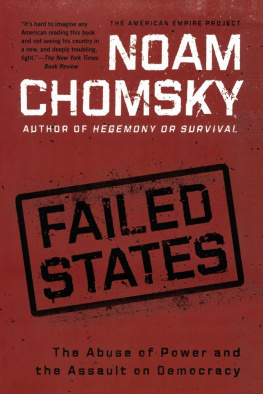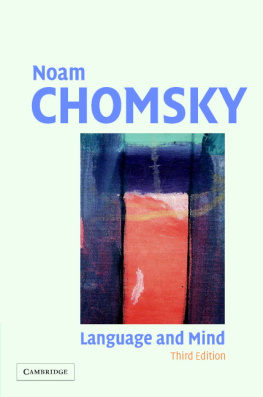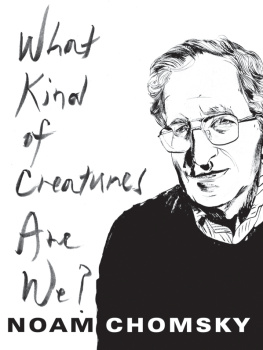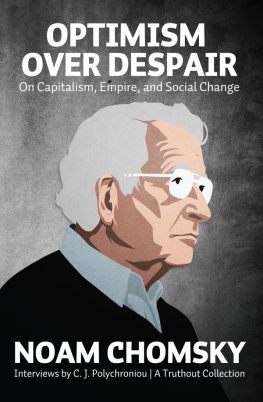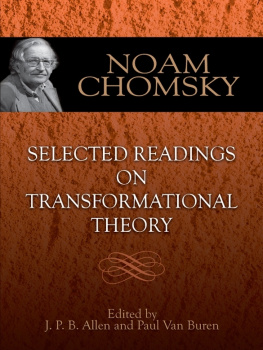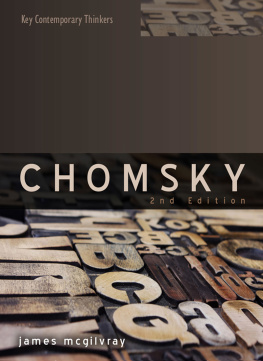Noam Chomsky - Cartesian Linguistics
Here you can read online Noam Chomsky - Cartesian Linguistics full text of the book (entire story) in english for free. Download pdf and epub, get meaning, cover and reviews about this ebook. City: Erscheinungsort nicht ermittelbar, year: 2008, publisher: Verlag nicht ermittelbar;Cambridge University Press, genre: Home and family. Description of the work, (preface) as well as reviews are available. Best literature library LitArk.com created for fans of good reading and offers a wide selection of genres:
Romance novel
Science fiction
Adventure
Detective
Science
History
Home and family
Prose
Art
Politics
Computer
Non-fiction
Religion
Business
Children
Humor
Choose a favorite category and find really read worthwhile books. Enjoy immersion in the world of imagination, feel the emotions of the characters or learn something new for yourself, make an fascinating discovery.

- Book:Cartesian Linguistics
- Author:
- Publisher:Verlag nicht ermittelbar;Cambridge University Press
- Genre:
- Year:2008
- City:Erscheinungsort nicht ermittelbar
- Rating:4 / 5
- Favourites:Add to favourites
- Your mark:
Cartesian Linguistics: summary, description and annotation
We offer to read an annotation, description, summary or preface (depends on what the author of the book "Cartesian Linguistics" wrote himself). If you haven't found the necessary information about the book — write in the comments, we will try to find it.
In this extraordinarily original and profound work, Noam Chomsky discusses themes in the study of language and mind since the end of the sixteenth century in order to explain the motivations and methods that underlie his work in linguistics, the science of mind, and even politics. This edition includes a new and specially written introduction by James McGilvray, contextualising the work for the twenty-first century. It has been made more accessible to a larger audience; all the French and German in the original edition has been translated, and the notes and bibliography have been brought up to date. The relationship between the original edition (published in 1966) and contemporary biolinguistic work is also explained. This challenging volume is an important contribution to the study of language and mind, and to the history of these studies since the end of the sixteenth century.
Noam Chomsky: author's other books
Who wrote Cartesian Linguistics? Find out the surname, the name of the author of the book and a list of all author's works by series.

